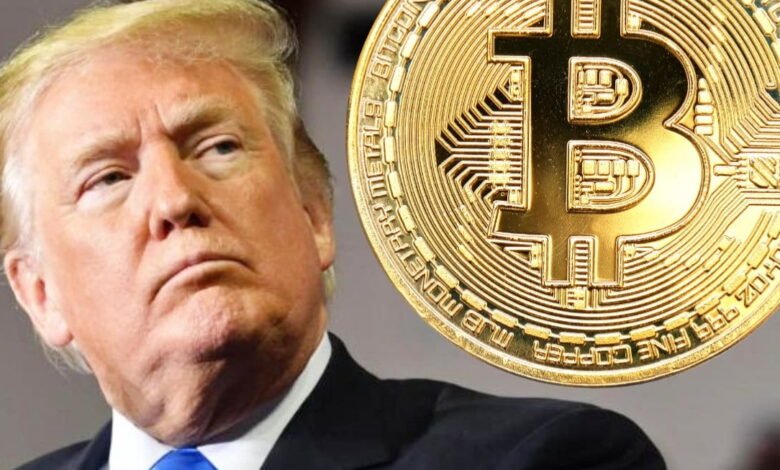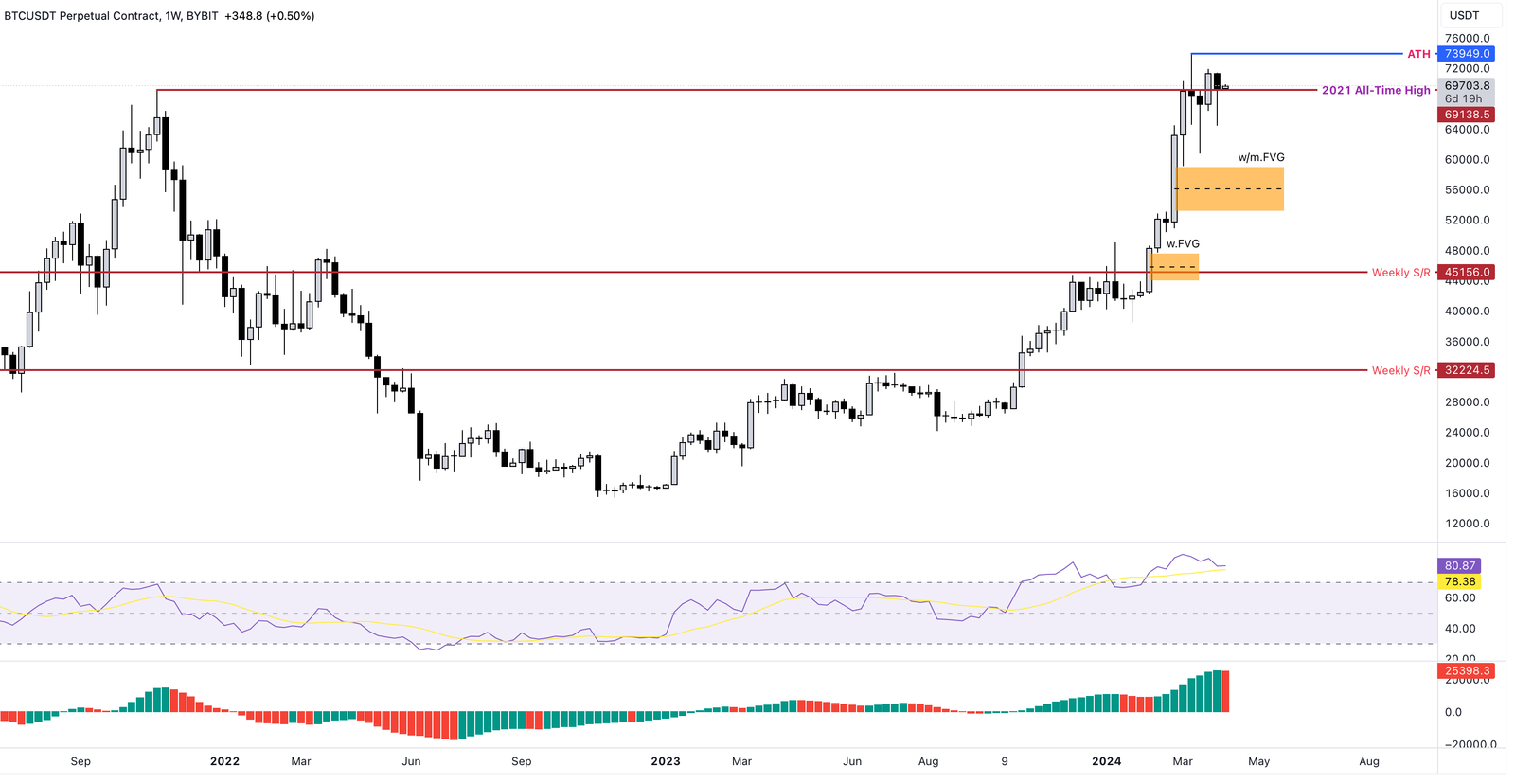
The crypto prices market has sharply swung since President Donald Trump’s November 2024 re-election. Initially seen as a favorable stimulus for digital assets, particularly Bitcoin, which skyrocketed, Trump’s triumph was seen. The market appears to be growing more antagonistic, raising the question: Will the emergence of bearish trends counterbalance the gains made after Trump’s election
Bitcoin Market Surge
Driven chiefly by investor excitement about his pro-crypto posture. The bitcoin market surged as President Trump emerged victorious in the 2024 contest. Throughout his campaign, Trump has promised to establish the United States as a leader in the bitcoin field. He suggested creating a national Bitcoin reserve and approaching digital assets less tightly than the last government had done. Notably, Bitcoin responded well to these pledges, peaking at $89,637, an all-time high.

Crypto aficionados especially lauded the triumph since it indicated a possible lowering of legal obstacles. Trump’s promise to replace Gary Gensler, the chairman of the Securities and Exchange Commission (SEC), who was considered a strong critic of cryptocurrencies, also contributed to the hope. Many, therefore, thought that the pro-crypto policies would bring in a new age of expansion for digital assets under Trump’s direction.
Crypto Market Decline
Growing bearish pressure on the crypto market as of April 2025 raises doubts on the viability of the post-election gains. President Trump’s declaration of new tariffs, meant to improve trade relations with foreign partners, is one of the key causes of the current crisis. Although deliberately meant to support home businesses, the tariffs have generated notable volatility in world markets.
Since Trump’s victory, Bitcoin, which reached $88,000, has fallen to $83,000. The market’s reaction to Trump’s tariff policy demonstrates that economic events, even world trade wars, can swiftly and severely damage digital assets. Crypto-related equities like MicroStrategy (now Strategy) and Coinbase Global have fallen, indicating that economic policies affect the market.
Crypto Regulatory Conflict
Apart from the changes in trade policies, the increasing regulatory scrutiny of cryptocurrencies adds another element fueling the pessimistic attitude. However, Trump’s government first pledged to a more deregulated approach. The subsequent focus on his family’s participation in the crypto sector raises questions over conflicts of interest.
Given such ethical conflicts, Democratic legislators like Senator Elizabeth Warren and Representative Maxine Waters have urged the SEC to examine Trump’s crypto endeavor, World Liberty Financial. These studies will probably contribute to more regulatory ambiguity, especially if new laws are passed to control the supposed hazards of cryptocurrency.
Furthermore, debates about stablecoin usage have turned into a cause of conflict. Democratic legislators have proposed legislation to restrict government personnel from buying stablecoin-backed assets, citing conflicts of interest. Republican lawmakers have blocked these measures, but the push for more control is still alive, and political divisions on bitcoin rules might complicate digital asset regulation.
Deregulation Trade Cryptocurrency
Balancing its deregulating goal with the economic effects of its actions presents one of the difficulties for the Trump government. Tariff-related uncertainty creates a risk climate that can discourage long-term investments. The deregulation could encourage more innovation and investment in the cryptocurrency industry.
Although intended to support home businesses, the Trump administration’s trade tariffs have caused instability in world markets. Which has affected investor mood in the bitcoin field. The continuous contradiction between Trump’s wish to deregulate cryptocurrencies and the possible negative effects of his trade policies points to certain market volatility for the foreseeable future.
Crypto Market Outlook
The Crypto Market’s present situation is one of cautious hope combined with increased risk. While Trump’s election victory initially bolstered the market, recent developments suggest that bears may be gaining prominence. The tariff announcements and regulatory pressures are already affecting it; it is unknown if the optimistic pace from late 2024 will be maintained.

Analysts debate whether the current negative tendencies would cause a protracted market decline. While some contend that the market will bounce back as traders adapt to the new economic environment, others think trade tensions and regulatory uncertainties will still significantly affect pricing. A careful balance between policy changes, market mood, and the global financial situation will determine the crypto market’s ultimate path.
Final thoughts
Following Donald Trump’s re-election, the bitcoin market saw a notable increase; yet, as of April 2025, the market confronts fresh difficulties that can perhaps undo the gains acquired in the wake of the election. Trade barriers, stricter regulations, and mounting questions about conflicts of interest clouded the market picture. While some believe the market will ultimately recover, others maintain caution and recommend that investors monitor developments and prepare for potential volatility.
The next few months could be pivotal in deciding whether the bears will totally wipe the election-driven gains or if the market can find a way to recover and keep expanding in the face of uncertainty as the political division over bitcoin control gets sharper.








